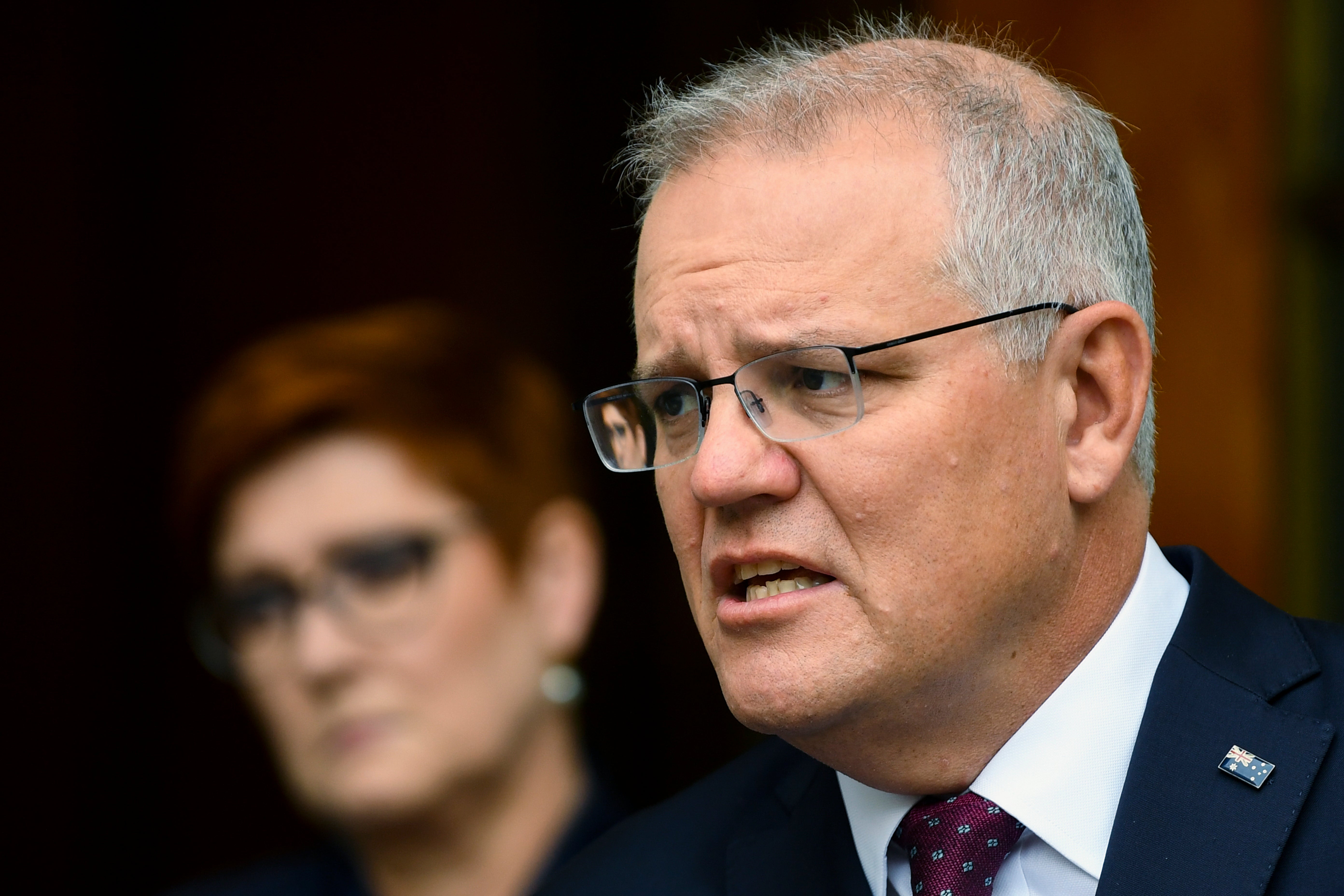Australia gives COVID-19 shots to virus-hit Papua New Guinea
Australia will send COVID-19 vaccines from its own supply to neighboring Papua New Guinea and will ask AstraZeneca to send more to try to contain a concerning wave of infections

Your support helps us to tell the story
From reproductive rights to climate change to Big Tech, The Independent is on the ground when the story is developing. Whether it's investigating the financials of Elon Musk's pro-Trump PAC or producing our latest documentary, 'The A Word', which shines a light on the American women fighting for reproductive rights, we know how important it is to parse out the facts from the messaging.
At such a critical moment in US history, we need reporters on the ground. Your donation allows us to keep sending journalists to speak to both sides of the story.
The Independent is trusted by Americans across the entire political spectrum. And unlike many other quality news outlets, we choose not to lock Americans out of our reporting and analysis with paywalls. We believe quality journalism should be available to everyone, paid for by those who can afford it.
Your support makes all the difference.Australia will send COVID-19 vaccines from its own supply to its near-neighbor Papua New Guinea and will ask AstraZeneca to send more to try to contain a concerning wave of infections, Australia's prime minister said Wednesday.
Prime Minister Scott Morrison said 8,000 doses would be sent next week for Papua New Guinea's front-line health workers and he and his Papua New Guinea counterpart James Marape would ask AstraZeneca to send another 1 million doses as soon as possible.
The European Union this month blocked a shipment of more than 250,000 doses to Australia because the need for them was not considered great enough in a country largely successful in containing the coronavirus.
“With the support of the PNG government, we are ... making a formal request to AstraZeneca and the European authorities to access 1 million doses of our contracted supplies of AstraZeneca not for Australia, but for PNG, a developing country in desperate need of these vaccines,” Morrison told reporters.
“We’ve contracted them. We’ve paid for them and we want to see those vaccines come here so we can support our nearest neighbor, PNG, to deal with their urgent needs in our region,” Morrison added.
Papua New Guinea is a poor country of almost 9 million culturally diverse people who speak more than 800 languages and mostly live in traditional villages. The extent of the pandemic there is difficult to gauge because of a lack testing.
Australian Chief Medical Officer Paul Kelly said half the women attending hospitals in the capital Port Moresby due to pregnancy were testing positive. Large numbers of front-line health workers were also contracting COVID-19.
“These are all signs that there is a major epidemic in the community,” Kelly said.
Marape warned this week that one in three or four people in Papua New Guinea could soon be infected.
Papua New Guinea is separated from the Australian mainland by an archipelago across the Torres Strait where residents have island-hopped between the two countries for generations.
Morrison announced new flight restrictions between the countries Wednesday. The sea border has been closed due to the pandemic, but is difficult to police. Several recent COVID-19 cases detected in the Australian state closest to Papua New Guinea, Queensland, originated across the border.
Morrison said the Papua New Guinea emergency “presents very real risks to Australia.”
Australia this week began vaccinating people on Australian islands in Torres Strait.
Torres Strait Island Regional Council Mayor Phillemon Mosby said his fellow Australian islanders were becoming increasingly concerned by the threat posed by nearby Papua New Guinea islands.
“An outbreak in our region would be certainly devastating,” Mosby, a resident of Poruma Island, told Australian Broadcasting Corp.
Australia has been among the most successful countries in the world in containing community spread of the disease. One of the reasons for Australia's success is that it does not share a land border with any country.